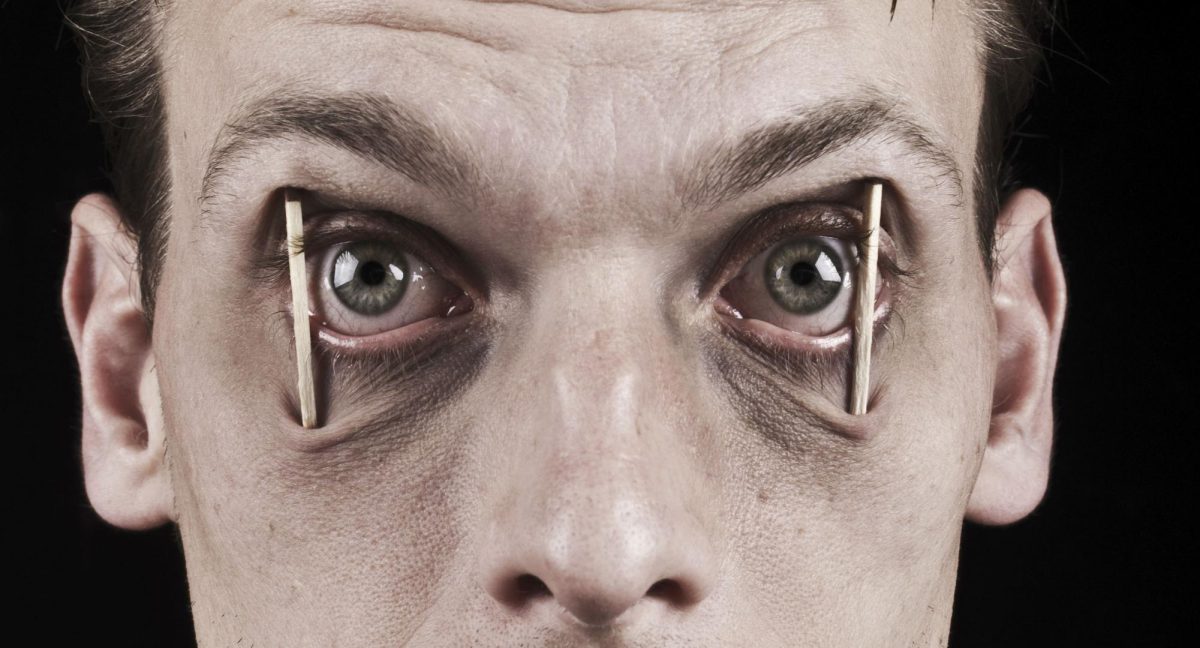Sleep deprivation is sleeping insufficiency or the affects from the lack of sleep someone gets. More often than not sleeplessness is caused by anxiety, stress, insomnia, use of electronic devices before bed, and sleeping during the day. The average amount of sleep needed to function properly is around 6-7 hours for the average adult, the younger you are the more sleep you require.
Sleep allows for the body to recoup and regenerate in certain areas and systems of the body, there are four stages. Stage 1 is light sleep which occurs after falling asleep and only lasts a small percentage of your sleep. You will then be moved into a deeper sleep (Stage 2) which occupies nearly 45% of sleep. Stage 3 consists of a deep sleep in which the body is more difficult to wake, the brain finds this to be most important for the body. The final stage of sleep is REM sleep, REM sleep is Rapid Eye Movement where the eyes are visibly moving beneath the lids. REM sleep is usually when your dreams are made up and occur.
When someone suffers from sleep deprivation in a consistent pattern it is likely to worsen other conditions or put people at more risk for these to occur. You can worsen conditions such as Type 2 diabetes, Heart attacks, strokes, obesity, high blood pressure, and mental health struggles. Sleep deprivation can also cause slow reaction time, daytime sleepiness, headaches, reduced brain functions like the inability to think or focus, fatigue, and in some cases passing out. If this cycle continues then it is likely that you can gain more serious issues such as tremors and impulsive actions.
It is incredibly important to get a good amount of sleep so that the brain can rest. Only sleeping for small amounts of time doesn’t allow for the body nor the brain to relax or rest. Your sleep provides a lot of helpful benefits such as Regeneration of certain systems, Regulated blood sugar, stress relief, better athletic performance, Restored immune system, and Stress Relief.
Alot of the time sleep deprivation can be caused for undetermined reasons. If you are struggling with sleeping at night, it might be time for you to take a look at your daily schedule. If you are prone to overthinking or anxiety, then it can be assumed that this is causing a lack of sleep. Not being able to sleep due to stress can also allow the body to stress itself even more then it is mentally.
How might you go about treating this? In order to treat this, you can make behavioral changes such as putting electronics down 2 hours prior to sleep, avoiding sugar and caffeine later at night, and changing basic pre-sleep routines. Taking medication is also an option if other methods haven’t helped. there are various medications that you can take to help regulate your sleep better, some medications even affect the dreaming pattern and make it less likely to suffer from nightmares that will ultimately end in you waking up.






Grecia • Feb 5, 2024 at 4:30 pm
I never knew about REM sleep, really informative.
Hope Affolder • Feb 5, 2024 at 11:05 am
This is an extremely informational article! Great Job!!
david osgood • Feb 5, 2024 at 8:14 am
nice article. definitely didn’t know about REM sleep. really good work.